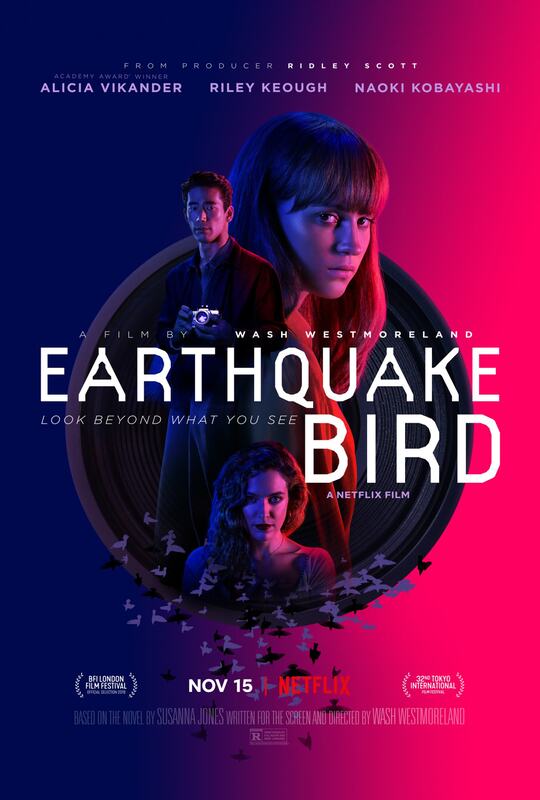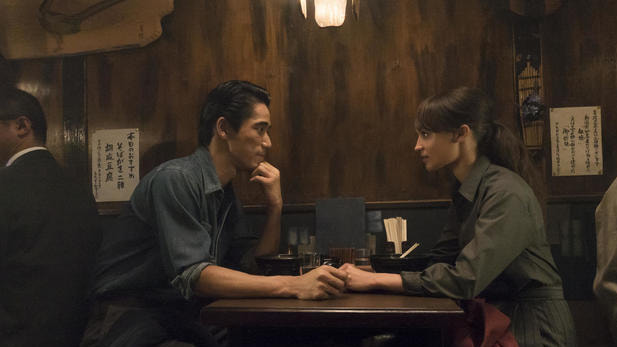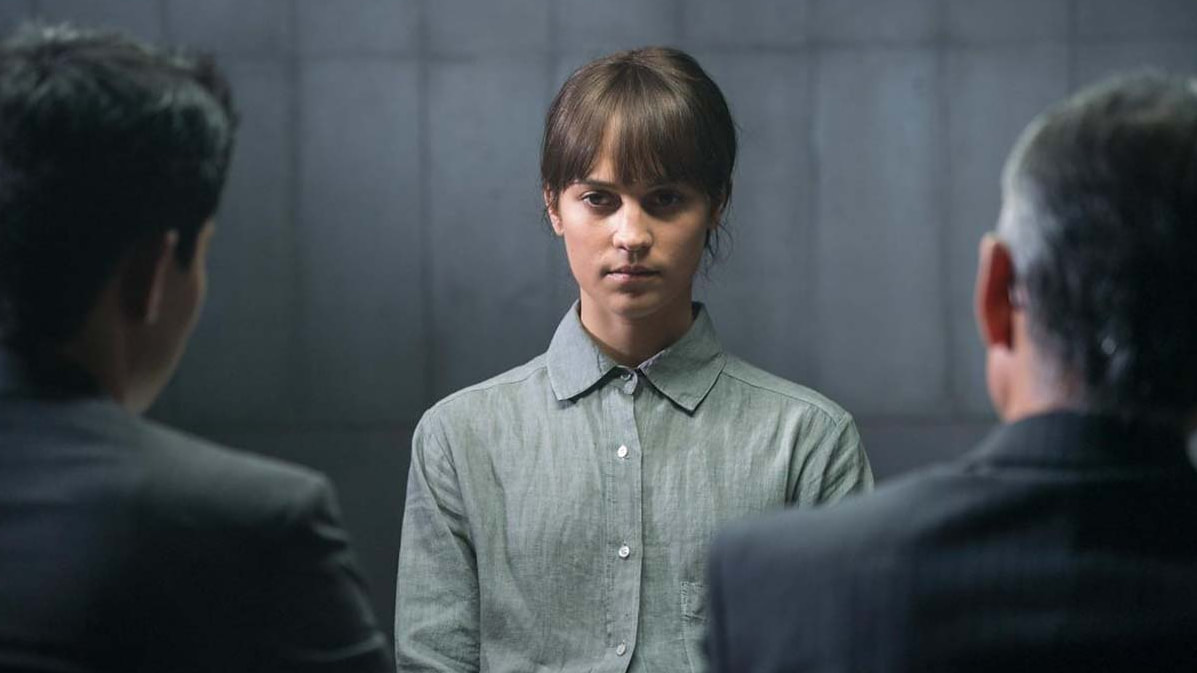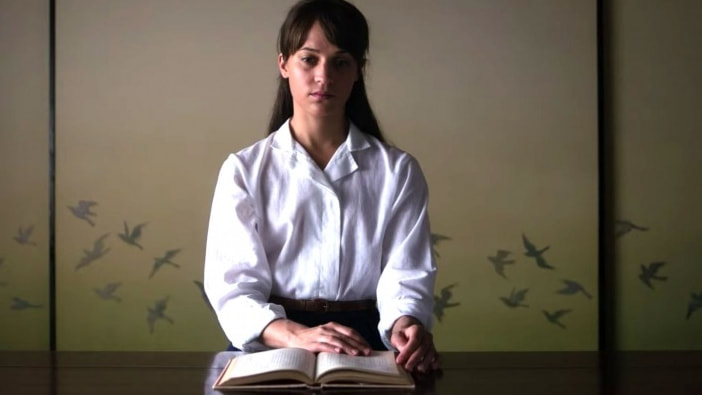Japan is not merely a culturally appropriated backdrop in this film. Traditions and cultural norms are woven into the essence of the film. Western viewers are given just enough explanation of elements that are key to the story, but much of the cultural setting is a given. It’s just normal life. Perhaps western audiences can learn from it but it’s not there to be marveled at. The ex-pat backdrop to the film creates a theme of outsider vs insider. Lucy has lived in Japan for many years, is fluent in the language and immersed in the culture. She knows the significance of different kinds of clothing, traditions and cultural norms. On the other hand, Lily is brand new to Japan and is somewhat caricatured as a brash American with no cultural sensitivity. She marvels at how “weird” things seem and makes no effort to learn the language until pushed. “Earthquake Bird” plays with gender roles in the noir tradition and has audiences changing their minds about which characters are the femme (or homme) fatale right until the end.” As tensions rise between the two women this sense of culture and belonging becomes a weapon. Lucy uses her Japanese-ness to claim ownership not only of Teiji, but also the space around them. She is marking her territory. Alicia Vikander delivers much of her lines in Japanese and learned Japanese for the part. She worked with translators who listened to her rehearsing in English and adjusted the Japanese version to match her nuances of emphasis, sarcasm, emotion, and respect. The result would, therefore, be a bespoke Japanese script that matches Vikander’s particular performance and be all the more compelling and realistic. However, since I do not speak Japanese I’d love to know if Japanese-speaking audience members feel this was successful. As the jealous dance between Lucy and Lily progresses we start to see elements of an unreliable narrator and begin to distrust what we see. Lucy is slowly unraveled and we’re not sure whether she really did murder Lily until the end. As Lucy put it herself “Death follows me. It always has.” We’re left in the unsettling space between believing her to be the victim and being an unhinged perpetrator. It also casts doubt on stories from her childhood and whether we can trust anything she has said about herself. One detective notes about Lucy “You have guilt from a deeper source” and viewers are left wondering what that guilt could entail. “Earthquake Bird” plays with gender roles in the noir tradition and has audiences changing their minds about which characters are the femme (or homme) Fatale right until the end. “Earthquake Bird” is thrilling with some striking cinematography that makes full use of Japanese scenery and is steeped in respect for Japanese culture. It draws on the noir tradition while maintaining a progressive stance on culture and gender.” Scenes of intimacy are also pleasantly devoid of the male gaze and heteronormativity. In that sense, it’s a film where any of the players could have the upper hand in various ways and it’s all the more thrilling as a result. This keen eye towards gender is probably to be expected of the director Wash Westmoreland, given that his past works include “Collette” and the Oscar-winning “Still Alice”. A central theme of the film is around photography, being seen, captured and admired. The question posed is whether you would allow someone to take pictures of you if you knew it took something from you every time. Then a further question – is that true of the characters we see on screen?
“Earthquake Bird” is thrilling with some striking cinematography that makes full use of Japanese scenery and is steeped in respect for Japanese culture. It draws on the noir tradition while maintaining a progressive stance on culture and gender. The central performances were unsettlingly on point. The slow burn nature may put off some viewers but this is a psychological thriller, not an action thriller. Come prepared to be immersed and you’ll get a lot out of “Earthquake Bird”. Comments are closed.
|
AuthorHi, I'm Caz. I live in Edinburgh and I watch a lot of films. My reviews focus mainly on women in film - female directors or how women are represented on screen. Archives
December 2021
Categories
All
|






 RSS Feed
RSS Feed
